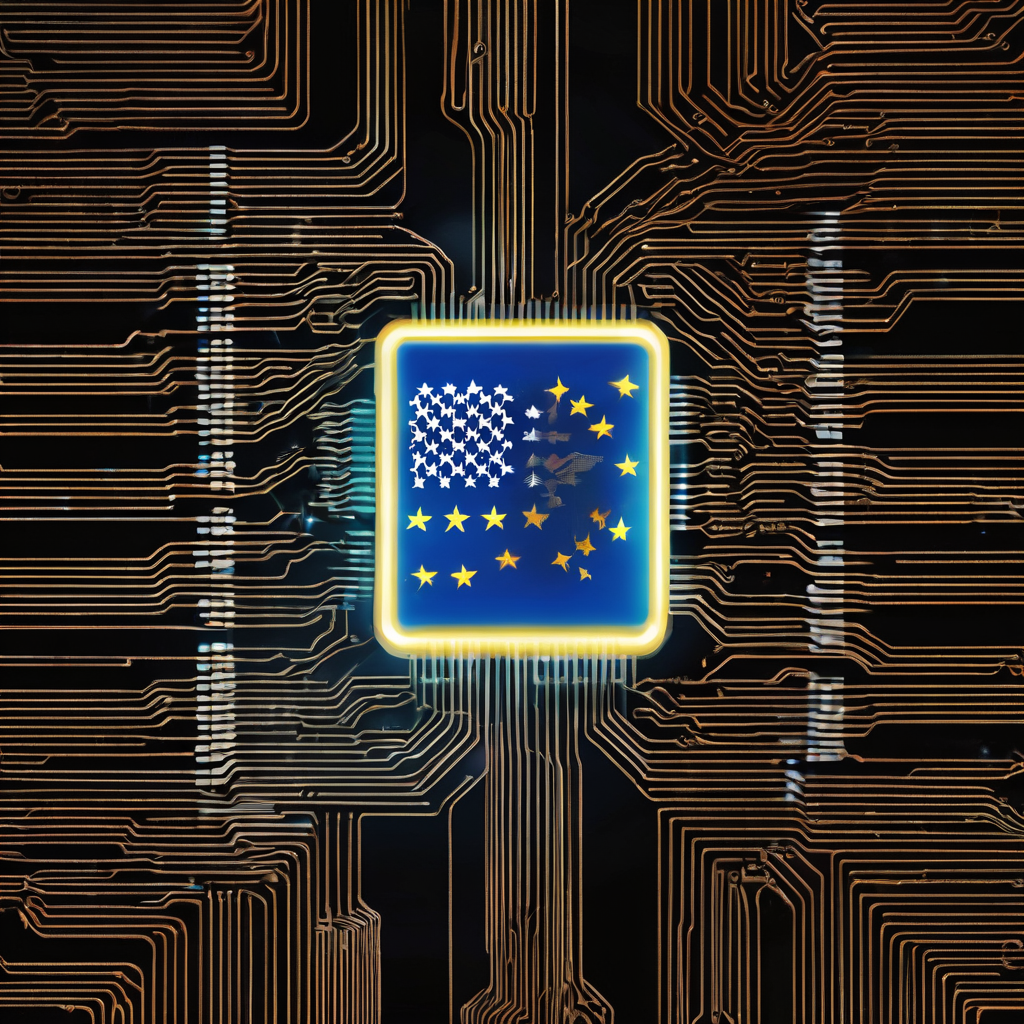
On Thursday, senators from both parties joined in urging a ban on selling advanced artificial intelligence chips to China. Senator Chris Coons, Democrat from Delaware, introduced an as-yet unnumbered resolution emphasizing the necessity of preserving U. S. “primacy in artificial intelligence” and limiting access to the chips essential for developing cutting-edge AI models. Co-sponsored by Senator Tom Cotton, Republican from Arkansas, the resolution follows President Donald Trump’s recent statement on CBS’s “60 Minutes, ” where he declared he would prevent China from acquiring the most advanced chips made by Nvidia, which he identified as the leading manufacturer. Senators Amy Klobuchar, Democrat from Minnesota, and Dave McCormick, Republican from Pennsylvania, also co-sponsored the resolution, according to Coons’ statement. Previously, Trump had considered permitting these sales, a stance Coons labeled a “tragic mistake” during an interview with CNN. Coons emphasized in his statement that U. S. “prosperity and safety depend on our ability to win the AI race. ” “This bipartisan resolution charts a course toward a future in which frontier AI systems are developed domestically by American companies, making our nation stronger and safer by ensuring our innovators, businesses, and military have all they need to succeed in the competition for the era’s dominant technology, ” Coons said. Cotton echoed these sentiments, asserting, “We must do everything to safeguard American AI leadership against adversaries like Communist China. ” The resolution contends that “maintaining American AI dominance will secure an edge in military strength, economic power, scientific progress, and geopolitical influence, enabling the United States to shape the future globally based on democratic values. ” It also praised the White House’s similar rationale in Trump’s AI Action Plan, quoting it as asserting that “denying foreign adversaries access to this resource is both a geostrategic and national security imperative. ” The resolution draws attention to the disparity in chip manufacturing between U. S. firms, collaborating with Taiwanese producers, and China’s domestic capabilities. “Despite over a decade of substantial indigenous efforts and more than $200 billion invested since 2014, China has struggled to manufacture advanced AI chips and thus depends on smuggling or legal imports of U. S.
chips, ” the resolution states. Last week, Cotton wrote to Commerce Secretary Howard Lutnick urging cooperation with Malaysian authorities and American companies to “tackle smuggling of export-controlled U. S. chips through Malaysia, a critical transshipment hub vulnerable to illegal chip diversion. Such diversion weakens American AI leadership and fuels China’s domestic AI sector. ” The letter proposed that the U. S. offer “guidance, best practices, and information sharing as appropriate to assist Malaysian officials in establishing a robust screening program for foreign direct investment (FDI) and beneficial ownership information (BOI), ” particularly targeting the expanding data center industry. It also recommended that the U. S. grant priority customs clearance to AI chips equipped with anti-diversion features. The Senate-passed version of the fiscal year 2026 defense authorization bill includes a clause requiring companies selling AI chips to offer first-refusal rights to American buyers before selling to entities in foreign countries of concern. Nvidia opposed this clause, with a spokesperson stating it attempts to “solve a problem that does not exist. ” The House-approved NDAA does not contain a similar clause, thus leaving its inclusion subject to bicameral negotiations on the final legislation.
US Senators Push for Ban on Advanced AI Chip Sales to China to Protect National Security


Stocks experienced their first weekly losses in three weeks on Friday, as investors pulled back amid concerns over the soaring valuations of artificial intelligence companies.

Vista Social has achieved a significant advancement in social media management by integrating ChatGPT technology into its platform, becoming the first tool to incorporate OpenAI’s sophisticated conversational AI.

In the rapidly changing sales landscape, advancements in artificial intelligence (AI), particularly AI agents powered by large language models (LLMs), are poised to fundamentally transform how sales organizations operate.

Vast Data, an AI startup specializing in advanced data storage, has secured a $1.17 billion commercial agreement with cloud provider CoreWeave, marking a significant expansion of their partnership amid rising demand for robust, efficient AI infrastructure.

In recent years, the gaming industry has undergone a major transformation fueled by the integration of artificial intelligence (AI) technologies.

Artificial intelligence (AI) is rapidly transforming the SEO analytics landscape, ushering in a new era of improved insights into website performance and user behavior.

Samsung has announced ambitious plans to build an "AI Megafactory," a cutting-edge facility powered by over 50,000 Nvidia GPUs and utilizing the Nvidia Omniverse platform.
Launch your AI-powered team to automate Marketing, Sales & Growth

and get clients on autopilot — from social media and search engines. No ads needed
Begin getting your first leads today